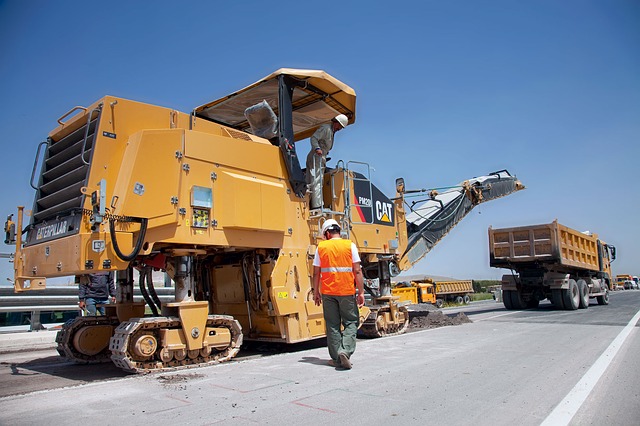Asphalt Millings (also known as pavement milling) is one of the most affordable solutions for asphalt pavement restoration. It is frequently used as a less expensive alternative to complete demolition and repaving.
 It is the process of grinding and removing the top layer of asphalt pavement (anywhere from a few inches to a full-depth removal) without affecting the underlying sub-base to allow for the installation of fresh blacktop. This is usually done to prevent the pavement from rising too high after years of asphalt resurfacing and prevent drainage issues.
It is the process of grinding and removing the top layer of asphalt pavement (anywhere from a few inches to a full-depth removal) without affecting the underlying sub-base to allow for the installation of fresh blacktop. This is usually done to prevent the pavement from rising too high after years of asphalt resurfacing and prevent drainage issues.
The asphalt ground and removed during the milling process can be repurposed for future projects at a lower cost. Recycled asphalt can be used in place of stone gravel and hot asphalt in some cases. It is also more resistant to harsh weather conditions and less expensive than other types of paving.
In this blog, we will discuss four reasons why you should use asphalt millings over stone gravel.
Asphalt Millings Lowers Your Cost
Crushed asphalt millings are manufactured from recycled asphalt pavement. Because the project’s materials are recycled, the cost is substantially lower than if you were to purchase all new materials.
Asphalt millings are asphalt from previous asphalt projects that have been crushed into very fine gravel. Therefore they cost a little less than traditional gravel, which must be bought from a stone yard.
Asphalt Millings Reduces the Use of Scarce Natural Resources
If you are planning a Leadership in Energy and Environmental Design (“LEED”) project, you should think about the advantages of asphalt milling.
Not only can asphalt milling help you reach LEED certification, but some asphalt pavement projects may also qualify for tax incentives. Commercial Asphalt parking lots, for example, may be eligible for tax rebates if asphalt millings are used.
Even if you do not plan to obtain LEED certification, asphalt milling is a more environmentally friendlier option than gravel since it employs recycled pavement materials.
Asphalt Millings Offers Higher Weather Resistance
Asphalt gravel is a long-lasting building material that can withstand extreme cold. Asphalt milling helps melt snow from pavements and even makes ice formation more difficult.
If you live in a city with harsh winters, you know how important strong and durable asphalt paving materials are for prolonging the life of the pavement.
Requires Virtually Zero Maintenance
Over time, asphalt millings harden, strengthening the surface of your asphalt parking lot or driveway.
Furthermore, asphalt millings do not need to be refinished, resurfaced, or replaced, saving you thousands of dollars in the long term. They are also resistant to weather elements, which minimizes the amount of maintenance you must perform.
If you are still not convinced…
Traditional gravel does not adhere to a single place. Instead, it scatters over time, lowering the depth of your pavement—especially if you filled a pothole with gravel.
Driving over gravel in the summer can stir up a lot of dust and debris. Gravel driveways are also more challenging to plow and are susceptible to ruts. For these reasons, you should choose asphalt millings over gravel.
Address
Commonwealth Paving, 136 Outerloop, Louisville, Kentucky 40214
Phone: 502-459-7283, Fax: 502-456-2678
Opening Hours
| Monday | 9:00 AM – 5:00 PM |
| Tuesday | 9:00 AM – 5:00 PM |
| Wednesday | 9:00 AM – 5:00 PM |
| Thursday | 9:00 AM – 5:00 PM |
| Friday | 9:00 AM – 5:00 PM |
| Saturday | Closed |
| Sunday | Closed |







